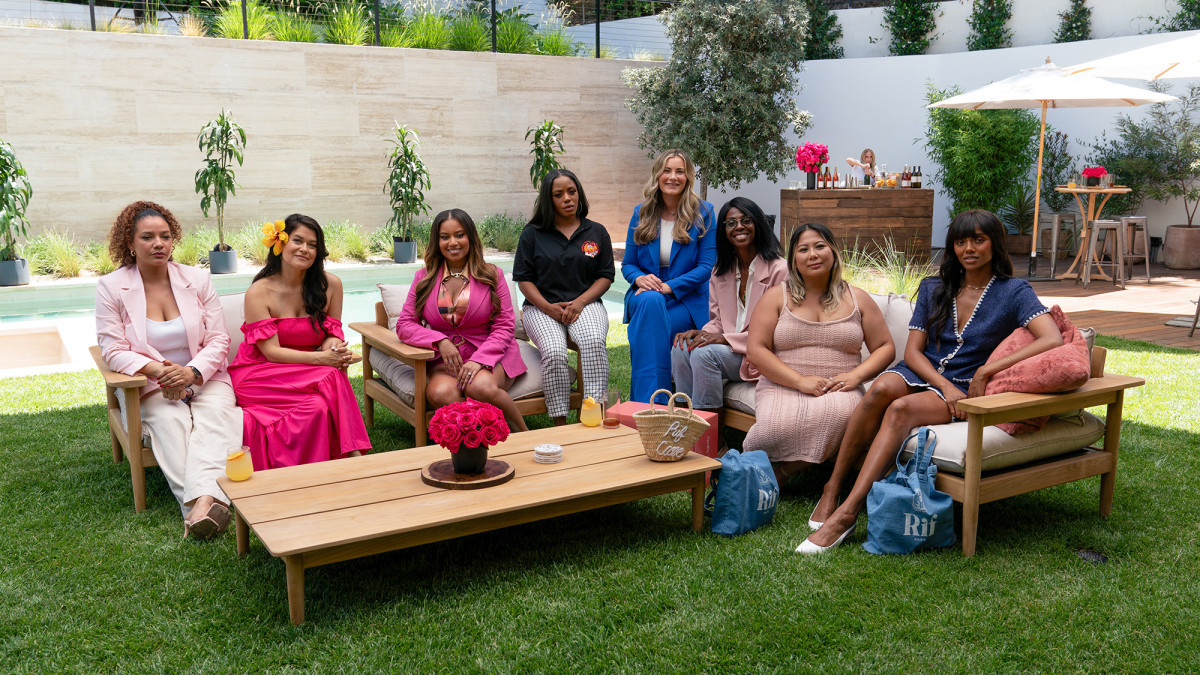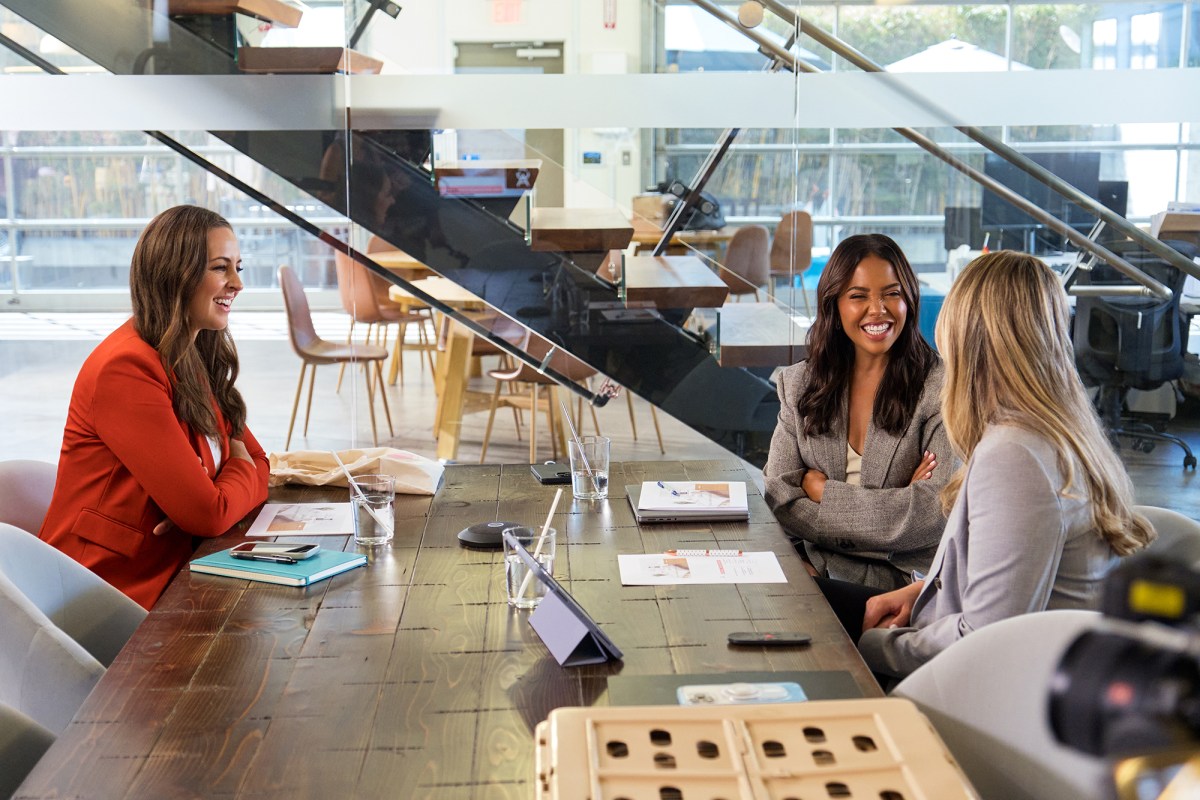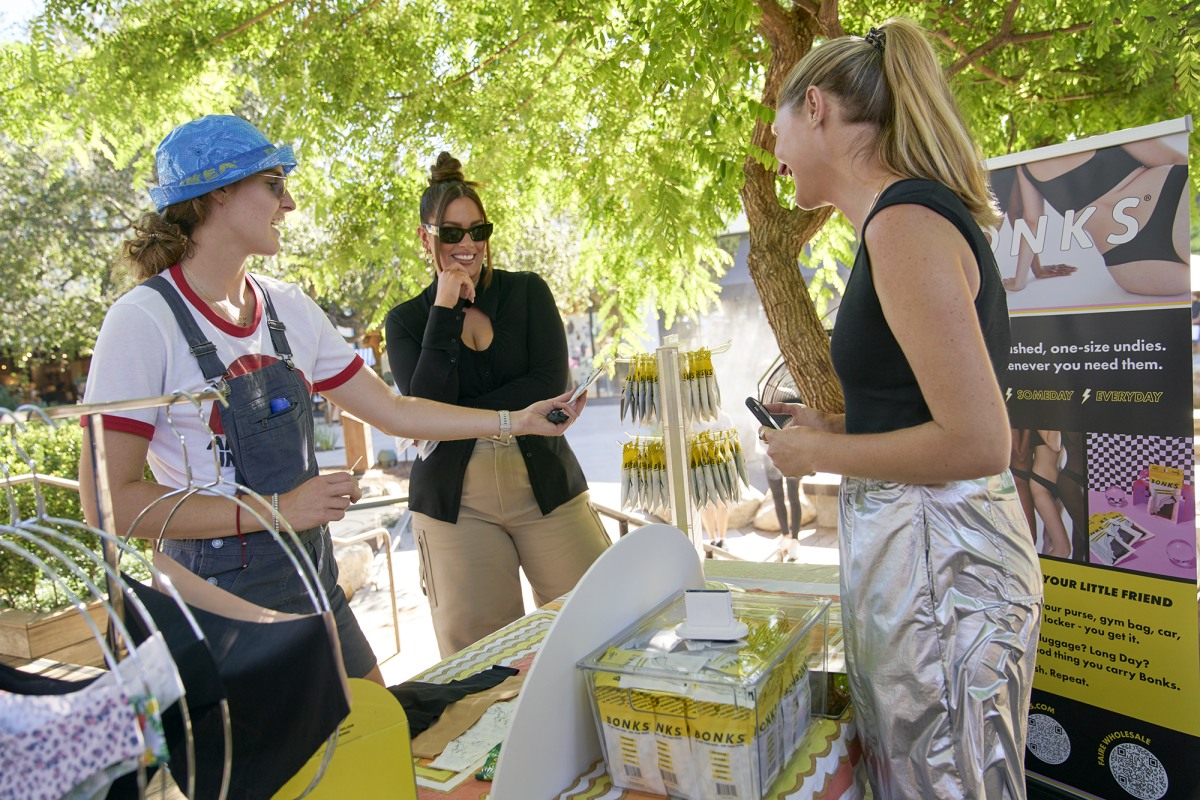Ashley Graham and Emma Grady talk about turning side hustles into main hustles

[ad_1]
Emma Greed is chased by one particular statistic – that women-owned businesses receive less than 2% of the total funding invested by venture capitalists in any given year. It’s not something you want to just accept.
“Women investing in other women is imperative,” says the CEO of Good American, the denim company she co-founded with Khloe Kardashian. “So, I see it as my responsibility, as someone who has been fortunate enough to be successful, to actually stop complaining about that statistic and start doing something about it.”
[Photo: Roku]
The latest chapter in Grede’s ongoing quest to promote women in business includes her new TV show, Side hustlersWith the participation of model and fellow entrepreneur Ashley Graham. The reality series, which debuted on the Roku Channel this month and has already been renewed for a second season, depicts a group of female business owners competing not only to get a big cash investment from Graham or Grede, but also to mentor them. In treatment, Side hustlers He skillfully reveals how investments and mentorship can both be equally important for turning a side hustle into a main one—and that they are often equally difficult to come by.
Both hosts have lived experience seeing how the 2% statistic impacts women entrepreneurs in real time. Greed remembers being ridiculed when she first had the opportunity to ask an investor for money, and Graham faced similar resistance — even after launching a successful lingerie business and investing in several other companies.
“I still find it difficult to get people to take me seriously because I’m just a model or I’m too beautiful to understand how to run and scale a business,” she says. “And I think this is part of the same problem that every woman faces, no matter who she is.”

[Photo: Roku]
Side hustlersOn the other hand, it shows what happens when women entrepreneurs have a more equal opportunity; When the people sitting across from them during a presentation can see a business rooted in solving a problem for women and better understand its true potential as an opportunity. Produced by Reese Witherspoon’s women-focused media company Hello Sunshine, in partnership with Ally Financial, the series credits predecessors such as Shark tank And the Apprenticebut it’s its own beast entirely.
The show begins with a round of speed dating-style pitches to help identify which founders will take it to the next level. Those who make it through receive $15,000 to cover expenses as they prepare for an exciting final show, seeking a major investment from Graham or Grede. Viewers see the hosts size up each budding entrepreneur — their strengths, flaws, and personalities — and guide them toward the optimal business situation. Along the way, the show depicts the exhausting reality of scaling a side hustle while working a day job and raising a family.
In other words, he never shies away from the kind of annoying moments in front of the laptop that grind culture tends to keep off Instagram.
“People talk about how hard it is to start a business, but they don’t really realize it until you get down to the nitty-gritty of it and have to make sacrifices left and right,” says Graham. “When we were in every meeting with these women, there was always some kind of metaphorical mirror where they looked at themselves and said, ‘I can do this. “I may have to give up some things, but this is mine, and I did my best for it.”

[Photo: Roku]
Every company on the show is different, but as the episodes develop, viewers may notice a lot of commonalities in the early issues the founders face with their startups. Each faced hurdles in marketing, product design and logistics, and it turns out that rebranding the tangy hot sauce could be as difficult as adding new sizes and styles to a line of pre-washed emergency underwear.
The hosts also help these founders get rid of the common misconception that in order to launch a successful business, one actually needs to be amazing at everything.
“Being a great entrepreneur is just knowing how to figure things out,” Grade says. “I don’t know everything about logistics, and, gosh, I ship a lot of packages every day.”
For Graham and Greed, the key to making sense of things in business is mentorship, but perhaps not in the traditional way it is often defined. On the show, they don’t just go under the hood of these companies and offer advice; They are also generous in opening rare Rolodexes and sharing contacts. By making several introductions, they prove that there is always a partner somewhere who can help find the unlock.
Of course, most women trying to speed up their side hustles don’t have an Ashley Graham or Emma Grade to turn to for such help. But then again, neither Graham nor Greed did that when they first started.

[Photo: Roku]
“I don’t think I had a mentor,” Greed says. “What I had was a group of clients that I turned into mentors. I think you use whoever you have at your disposal. If you know someone who has a similar business to yours, you go out and leverage those conversations. When I first started Good American, I would call the bosses Other jeans company executives and I say to them, “I’m having this problem at my factory,” and they talk to me for 30 minutes. love They talk about themselves and love to help. All you have to do is get out of your own way and ask the question.
According to the Side hustlers Hosts, mentorship does not necessarily mean having a mentor to turn to for every obstacle and occasion. Instead, it can just mean cultivating a group of contacts to reach out to for specific advice. Why ask someone to be your mentor, when you can just ask them a question?
“Talk to people about what you’re building,” Graham adds. “Because you never know who might be able to solve a problem or become a business partner or investor for you. It’s all about those connections.
Many women on Side hustlers Take advantage of the hosts’ connections, implement their advice, and raise your game level dramatically. It won’t spoil the series to reveal that by the final episode of this season, one company ends up in such a powerful position that its founder(s) are able to reject Graham’s initial offer of a $100,000 investment in exchange for a percentage of equity.
No one was more surprised than Graham herself, who felt a certain bittersweet pride in that moment.
“Normally, no one would turn down that kind of money, especially given the experience I have in this category,” she says. “But they took what they already had and applied what I gave them, and I was happy to be able to do a little counteroffer.”
It’s a perfect demonstration of how the problem of women-owned businesses can evolve, with proper guidance, from whether they will receive more than 2% of total venture capital funding to whether they should accept the first offer when that funding inevitably arrives.
[ad_2]
Source link



